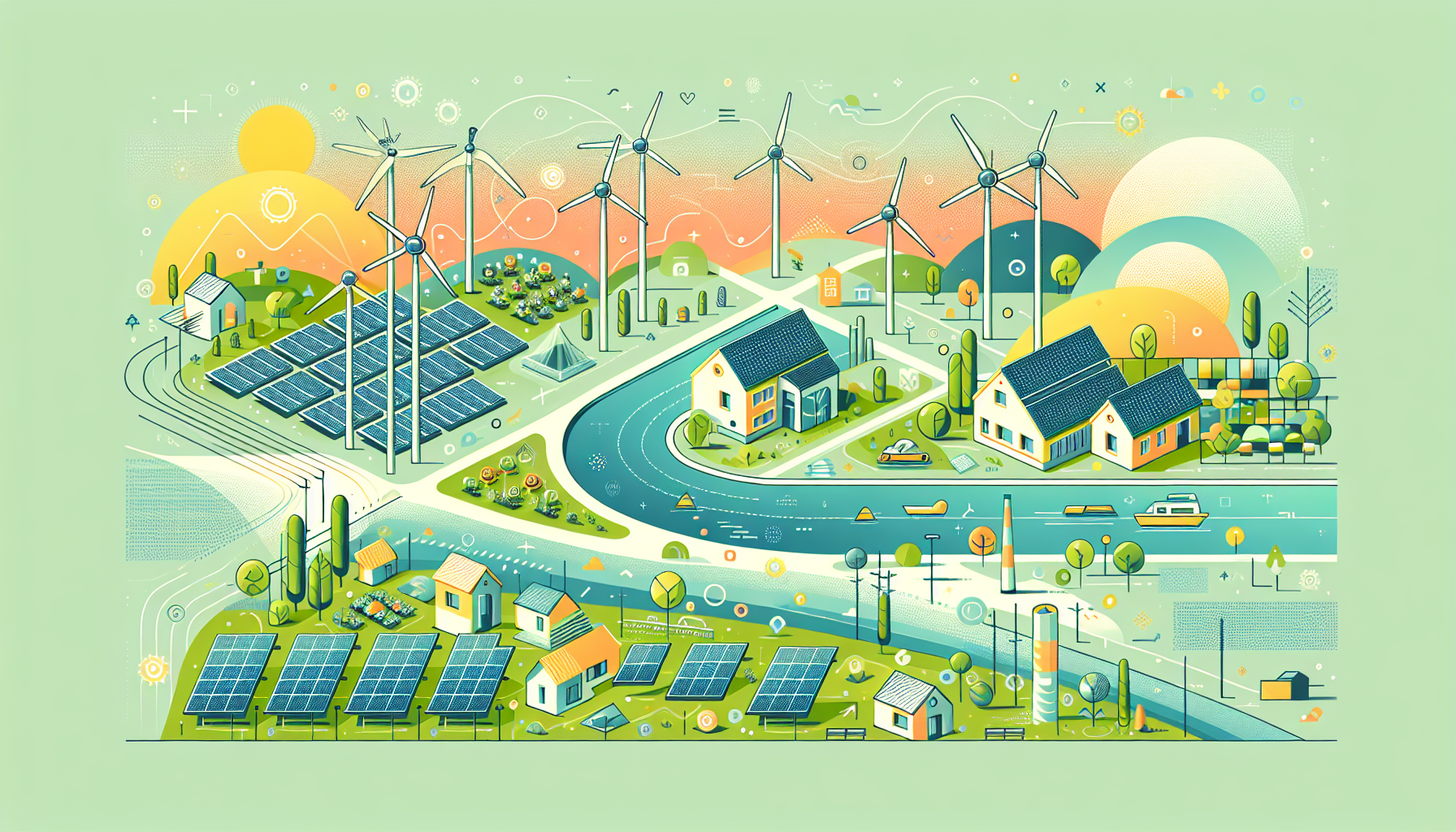Navigating Mortgages for Eco-Villages and Sustainable Communities

Eco-villages and sustainable communities are emerging as vital components of the modern housing landscape, emphasizing green community financing and cooperative living mortgages. These innovative housing models not only promote environmental sustainability but also foster a sense of community among residents. As the demand for eco-friendly and socially responsible housing grows, understanding the financing options available for these projects becomes increasingly important.
Sustainable Financing Options
Financing for eco-villages and sustainable communities often involves specialized mortgage products tailored to support sustainable development loans and community-led initiatives. Organizations like the Ecology Building Society offer mortgages specifically designed for housing co-operatives, Community Land Trusts, and other community-led projects. These mortgages are crucial for maintaining affordability and ensuring that housing remains sustainable over the long term.
Community Land Trusts (CLTs)
Community Land Trusts (CLTs) are a key model for sustainable homeownership. CLTs retain ownership of the land and lease it to homeowners, allowing for affordable housing options. Freddie Mac offers CLT Mortgages, which provide homeowners with access to low down payment options and support shared equity homeownership. These mortgages are designed to foster sustainable housing by keeping homes affordable for future generations.
Green Mortgages
Green mortgages, also known as Energy Efficient Mortgages (EEMs), are another vital option for sustainable communities. These mortgages are designed to help borrowers finance energy-efficient improvements to their homes, either during purchase or refinancing. By integrating energy-saving features, homeowners can reduce utility bills and qualify for more favorable loan terms. For instance, properties with high energy efficiency ratings, such as those achieving an A or B rating under the Energy Performance Certificate (EPC) scheme, may be eligible for better financing conditions. As discussed on Danijela Quenzler's website, green mortgages can enhance the long-term value of properties and contribute to a more environmentally conscious approach to homeownership.
Cooperative Living and Mutual Home Ownership
Cooperative living arrangements, including housing co-operatives and mutual home ownership societies, offer residents a stake in their community. These models empower members to collectively manage their properties and often involve shared maintenance costs and community decision-making processes. For financing, organizations like Ecology Building Society specialize in providing mortgages tailored to these cooperative structures.
Benefits of Cooperative Living
The benefits of cooperative living extend beyond financial savings. They foster a sense of community, promote shared responsibility, and often provide a more affordable route to homeownership compared to traditional single-family homes. Additionally, the cooperative model can allow for innovative and sustainable housing designs that might not be feasible under conventional ownership structures.
Navigating Green Community Financing
Navigating the financing options for eco-villages and sustainable communities requires careful consideration of both financial and environmental factors. Here are some steps to consider when evaluating green community financing options:
- Energy Efficiency Assessments: Ensure the property or proposed development meets high energy efficiency standards. Tools like the Energy Performance Certificate (EPC) can help assess and improve energy efficiency.
- Research Specialized Mortgage Products: Look into specialized mortgage options like green mortgages and CLT Mortgages that are designed to support sustainable housing initiatives.
- Engage with Community-Led Organizations: Partner with organizations that specialize in community-led housing, such as Ecology Building Society, to explore tailored financing solutions.
- Consider Innovative Building Materials: Explore the use of sustainable building materials and construction methods that can reduce environmental impact and enhance financing eligibility.
- Access Homeownership Education: For initiatives involving first-time homebuyers, access to homeownership education programs can be crucial. Programs like those offered with Freddie Mac's HeritageOne Mortgage can provide valuable insights and resources.
Innovative Mortgage Solutions
Innovative mortgage solutions are emerging to address the diverse needs of sustainable communities. For instance, Freddie Mac's HeritageOne Mortgage offers financing options for Native American communities, demonstrating how specialized lending can support underserved groups. Similarly, green mortgages are becoming more prevalent, encouraging homeowners to adopt sustainable practices by offering favorable terms for energy-efficient properties.
Technology in Mortgage Lending
The integration of technology, such as AI-driven decision-making tools, is transforming the mortgage industry by enabling more inclusive and sustainable lending practices. Platforms like Tavant highlight the potential for digital solutions to enhance mortgage lending processes, ensuring fairness and efficiency in lending decisions.
Conclusion and Next Steps
In conclusion, navigating mortgages for eco-villages and sustainable communities involves understanding a range of specialized financing options, from green mortgages to cooperative living models. These innovative approaches not only support environmentally conscious living but also promote affordable and inclusive housing solutions.
For those interested in exploring these options further, it's essential to utilize mortgage calculators and tools to assess financial eligibility and potential savings from energy-efficient improvements. Additionally, contacting financial advisors or organizations specializing in community-led housing can provide valuable guidance in securing the right financing for your sustainable housing project. Feel free to reach out to us for more information on optimizing your mortgage strategies.











